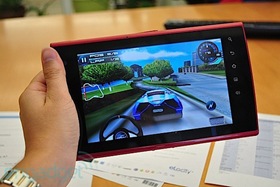
Some are predicting this will be the year of the tablet computer as everyone tries to repeat the great success that Apple has with the iPad. Many of these new devices will run Google Android or Google Chrome, but Microsoft, HP and others plan their own tablets with their own operating systems.
If you add more mobile devices into the mix, the landscape for business is beginning to look like the wild wild west again. Granted that new productivity tools can be great for getting things done, but supporting all these operating systems and hardware can wreak havoc on an organization’s Help Desk and IT staff.
According to a recently released 2010 study of help desk trends, HDI (formerly known as the Help Desk Institute) said that the number of calls to help desks is on the rise. Communication to a help desk is not only through the telephone, but also through email, chat, Twitter and other online systems. HDI found that the number of incidents increased with 67% of all help desk operations experiencing increases in 2010. And here I thought technology was getting easier?
One proposed explanation for the increase is it’s easier to seek help. Many organizations have improved their support operations so that getting help is as easy as sending a text message or tweet. That may encourage people to seek help for simple issues that they would have solved on their own in the past. These alternatives have also reduced the traditional long waits to get someone to respond to you, since most of it was by telephone.
A better explanation may be that with all these new devices proliferating, the complexity of business environments is increasing. People like using iPhones, Android phones, iPads and all these new gadgets and want to connect them to corporate networks. In fact IDC says that smartphones and tablets will overtake PCs in the next few years. IT departments have a lot of experience connecting Blackberries into the IT infrastructure, but with Apple and Android devices, things are getting complicated.
It all boils down to the same thing. I want to work from anywhere and at anytime. I shouldn’t be restricted to working 8 – 5 or from an office. Lots of people are getting lots of work done at CES this week and many of them are using something other than a PC to do it. Unfortunately for IT departments, more devices and more mobility requires more support.
This is coming at a time when IT departments are cutting budgets for help desk and devoting more resources to more strategic initiatives. Some organizations are focusing on improving help desk and general IT efficiencies by using Information Technology Infrastructure Library (ITIL) standards. ITIL incorporates practices and procedures in a number of IT management areas, including the help desk, that help organizations determine the root causes of problems and predict future difficulties. This is great, but if you are slashing IT staff, efficiencies only go so far.
Others are looking to outsource this function and buy Help Desk as a service. I recently spoke to a law firm that decided they don’t want to be in the help desk or IT support business. They are in the business of supporting their customers’ legal needs and anything else is a distraction. They prefer to delegate the services to someone who lives and breathes it, just as they live and breathe the law.
For many organizations this makes sense. As you hear and read about all the new technology coming out of CES this year, stop and think about how it might affect your business. Tablets and smartphones have made people much more productive, but unfortunately their mobility requires more support not less. Turning to someone who is an expert at this may be your best new year’s resolution.
Photo credit sam_churchill

